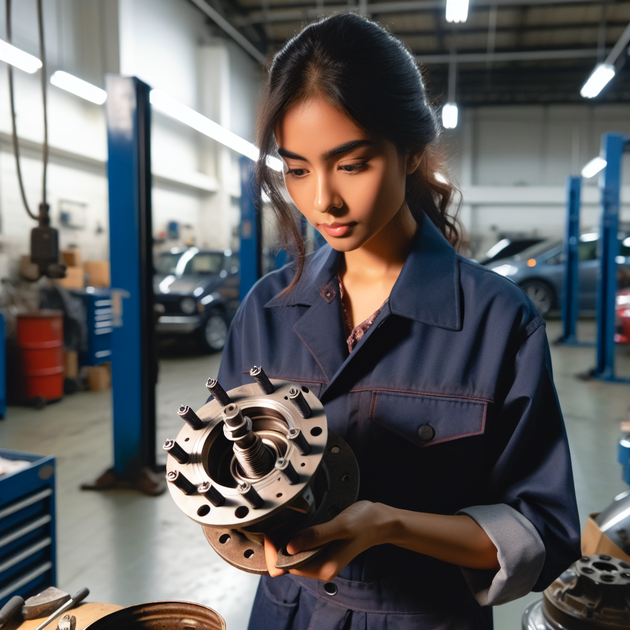Ever been told by a mechanic that your car has “JB welded bolts” and now you’re suddenly facing a $500 bill? You’re not alone—and you’re right to pause and ask questions before handing over your credit card.
What Does “JB Welded On” Even Mean?
Let’s break down the basics. JB Weld is a brand of strong two-part epoxy commonly used in automotive repairs. It’s designed for quick fixes—think patching up a leaky oil pan or sealing a crack in plastic—not as a permanent substitute for proper parts like wheel studs or bolts.
If someone says a bolt has been “JB welded on,” it means instead of being properly threaded or torqued in place, the bolt was glued in with epoxy. That’s not a safe or recommended way to secure any part of your car’s wheels or hubs. In fact, most professional mechanics would consider this a major shortcut—if not downright unsafe. For more on why proper bolt installation matters, check out this Popular Mechanics article on lug nut safety.
Should You Really Pay $500 for This Repair?
Hearing you need to spend $500 just to replace two JB welded bolts sounds suspicious—especially if the shop you’re dealing with is the only one that’s touched your car recently. Here are some things that don’t quite add up:
- Wheel hub replacement for an Acura MDX typically costs between $200-$400 per side, parts and labor included.
- Replacing a wheel stud (just one bolt) should only take about an hour and cost less than $100 per stud at most shops, according to RepairPal.
- If you’ve been driving for months since the last service without wobbling or warning lights, it’s unlikely the hub is severely compromised.
- JB Weld can hold for a while but isn’t likely to survive months of highway driving without some sign of failure.
So, where is this $500 price tag coming from?
Signs Something Might Be Off With the Mechanic’s Story
When an auto shop claims someone “JB welded” the bolts—but no one else has touched your car since their last service—it raises some red flags. Here are some key things to consider before agreeing to expensive repairs:
- Ask for an itemized quote showing parts and labor costs separately.
- Request photos of the damage or the supposed JB Weld so you can see what they’re talking about.
- Get a second opinion from another reputable shop—sometimes just calling around can save you hundreds.
- Check your consumer rights about auto repairs in your state.
- If you suspect foul play, know you can file a complaint with the Better Business Bureau.
If you never noticed any wobbling, vibration, or warning lights, it’s less likely that a major safety issue existed all along. Problems with wheel studs usually show up fast and loud—think thumping noises, steering issues, or even wheels shaking.
Real-World Example: When Shops Blame “The Last Guy”
This isn’t the first time folks have heard a shop blame mysterious damage on an unnamed “previous mechanic.” Years ago, a friend brought their Toyota in for brake work only to be told the caliper had been “glued on” and needed total replacement. Turns out, no glue was found—the shop just didn’t want to admit they’d cross-threaded the bolts themselves.
If only one shop has ever touched your car and they’re pointing fingers, it’s perfectly reasonable to feel skeptical. Always ask for proof and don’t be afraid to say you’ll get back to them after checking elsewhere.
What Should You Do Next?
Here’s a quick checklist before you agree to any expensive repairs for supposed “JB welded bolts”:
- Request an itemized invoice and detailed explanation from your shop.
- Ask them if replacing just the stud—rather than the whole hub—is possible.
- Snap your own photos of the problem area for documentation.
- Research average local prices for similar repairs using tools like RepairPal.
- Consider getting a second opinion from another mechanic before paying up.
In short: don’t rush into an expensive fix until you’re sure what’s really needed.
Final Thoughts: Don’t Let Confusing Repairs Catch You Off Guard
Car repairs can be stressful—especially when you’re being told something technical and unexpected like “JB welded bolts.” The important thing is to ask questions, get clear documentation, and never feel pressured into repairs that don’t add up.
Ever had a mechanic blame previous work for new problems? How did you handle it?

Leave a Reply